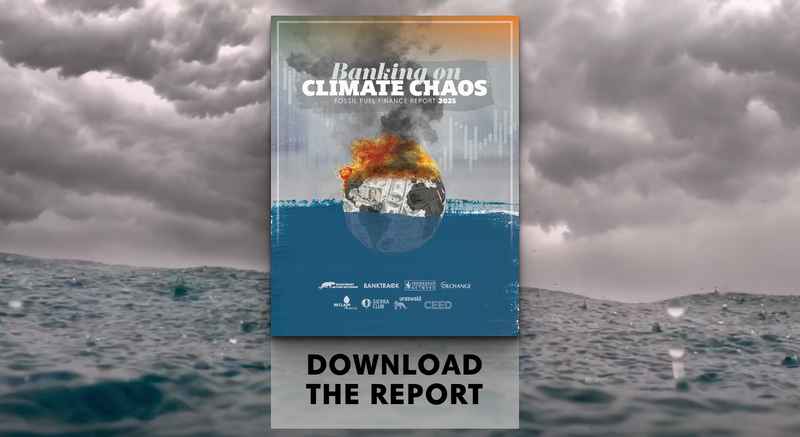Despite mounting climate concerns, global financial institutions are increasing their support for the fossil fuel industry. According to the Fossil Fuel Finance Report 2025, a staggering $869 billion was funneled into fossil fuel companies by the world’s 65 largest banks in 2024—a sharp rise from $707 billion in 2023. This upward trend has triggered alarm among climate advocates, underscoring the growing gap between net-zero goals and current financial flows.
A Snapshot of the Global Financing Shift
The report makes it clear: achieving net-zero emissions by 2050 requires a sharp decline in fossil fuel investment. The International Energy Agency (IEA) warns that such investments must shrink by more than 50% by 2030 to stay aligned with climate goals. However, the current trajectory reflects a widening divergence from these targets.
SBI’s Role in Fossil Fuel Finance and Its Position
The State Bank of India (SBI) is among nearly 50 banks that increased their fossil fuel lending in 2024. SBI’s fossil fuel financing grew by $65 million, reaching a total of $2.62 billion. This change moved the bank up the ranks—from 49th to 47th largest fossil fuel financier globally.
Interestingly, while SBI has committed to net-zero emissions by 2055, its financial behavior presents a mixed message. Nonetheless, the bank is targeting at least 7.5% of its domestic gross advances to be directed toward green initiatives by 2030.
Leaders and Laggards: How Other Banks Compare
JPMorgan Chase continues to dominate the fossil fuel financing landscape, disbursing $53.5 billion in 2024 alone. To put this in perspective, this amount exceeds SBI’s total fossil fuel financing over the past four years (2021–2024), which totaled $10.6 billion.
The rise in funding from major banks represents a reversal from earlier trends, which had hinted at a slow but steady pullback from fossil fuel investments.
The Coal Conundrum
Coal financing remains a significant concern, particularly in India. A think-tank report reveals that only two Indian banks have formal coal exclusion policies, indicating a lack of systemic commitment to phase out one of the dirtiest fossil fuels. Experts argue that coal is now economically unviable when compared to renewable alternatives—making continued investment a strategic misstep.
Europe Joins the Retreat from Climate Promises
What was once thought to be a shift in Europe toward greener financing is now showing signs of regression. Several European banks, previously hailed for their climate leadership, have backtracked on commitments, joining their North American counterparts in bolstering fossil fuel operations. The surge in acquisition-related financing within the fossil fuel sector also signals an ongoing consolidation trend.
Political Influence on Financial Direction
Geopolitics has also played a critical role in shaping these financial patterns. The U.S. withdrawal from the Paris Agreement and the rollback of environmental safeguards during the Trump era have emboldened financial institutions. Many U.S. banks have distanced themselves from global green finance alliances, contributing to the resurgence of fossil fuel investments.
Looking Ahead: A Tipping Point or Business as Usual?
Since the signing of the Paris Agreement in 2015, global banks have poured an estimated $7.9 trillion into fossil fuel enterprises. This persistent funding of polluting industries poses a severe challenge to global climate targets. The Fossil Fuel Finance Report 2025 serves as a stark reminder: unless there is a radical shift in financial priorities, the path to a sustainable future may slip further out of reach.




